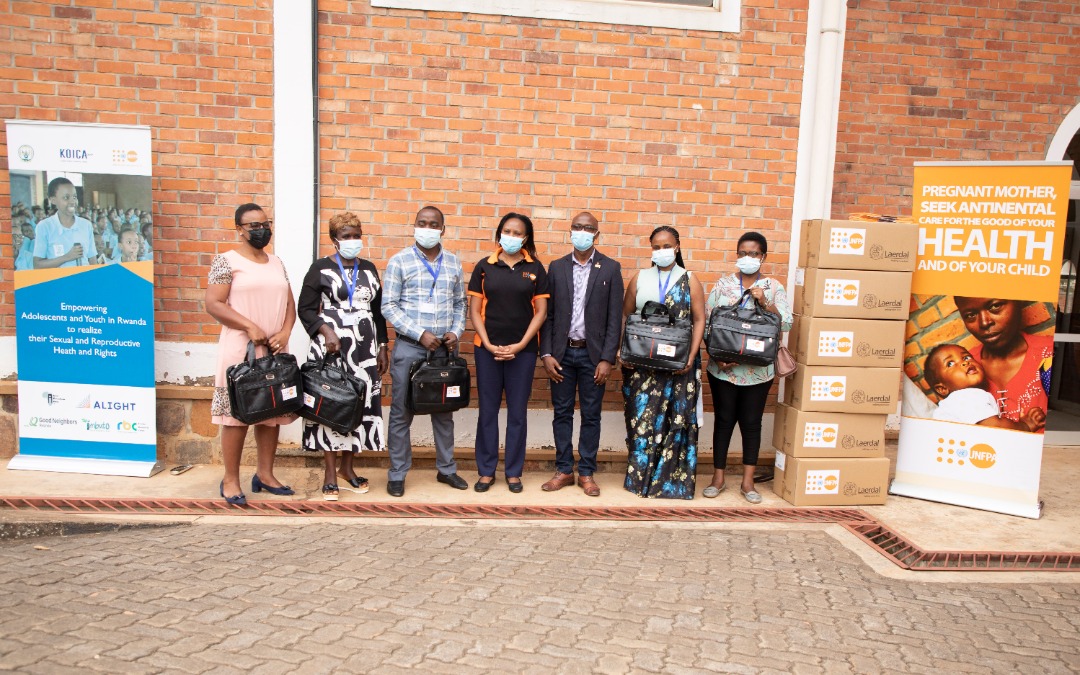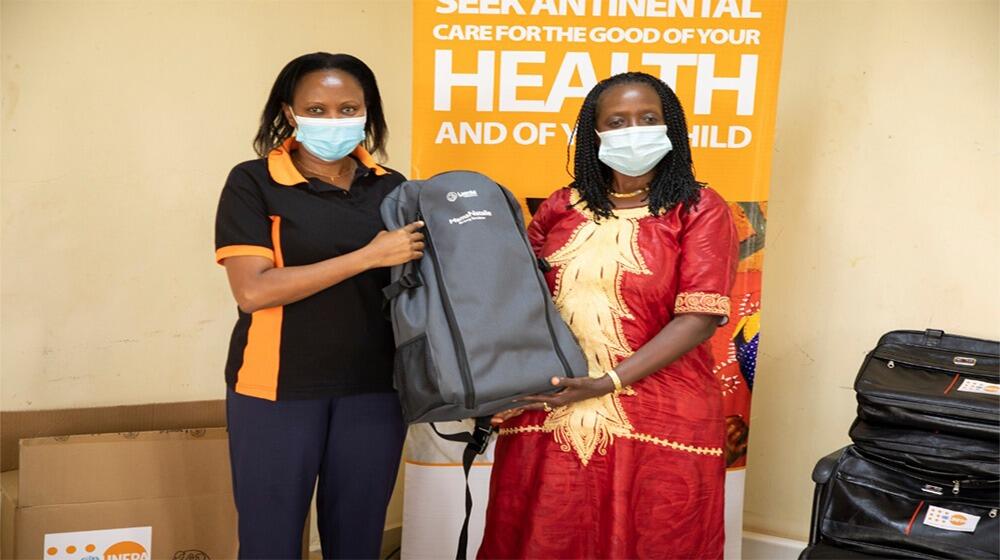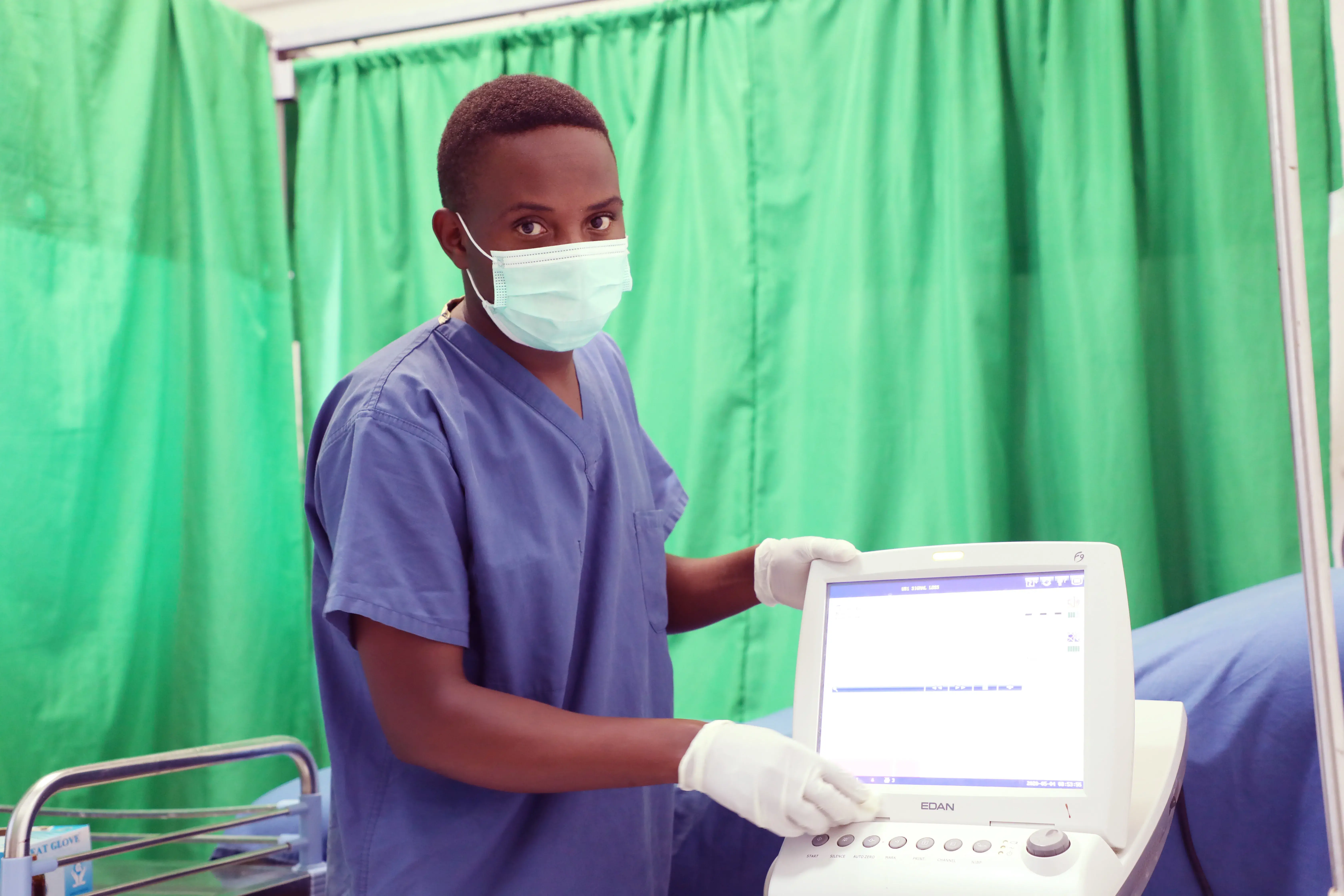The State of the World's Midwifery Report released in May this year reiterated that when midwives are well trained and properly equipped, they can deliver up to 90% of quality integrated SRHR/HIV/GBV services, which translates to 4.3 million lives saved every year by averting 67% of maternal deaths, 64% of neonatal deaths, and 65% of stillbirths.
Ending preventable maternal deaths remains at the core of UNFPA’s work, through strengthening midwifery in more than 120 countries. In Rwanda, UNFPA’s support focuses on the promotion of the midwifery profession by strengthening its 6 pillars: education, regulation, associations, midwifery workforce, enabling environment, and recognition of midwifery.
On August 20th, UNFPA handed over equipment to Rwanda Association of Midwives and midwifery schools of the University of Rwanda, Ruli Higher Institute of Health Sainte Rose de Lima, and Kibogora Polytechnic. The equipment included: anatomical models commonly known as Maman Natalie’s, and related accessories, donated to Rwanda Association of Midwives to support the rollout of more than 50,000 Happy Birth Days project and IT equipment (laptops) to facilitate research and other academic activities in midwifery schools.
“The equipment we are handing over today comes in addition to UNFPA’s previous support to midwifery education both for pre-services and in-services midwives. The equipment will be used in the skills and simulation lab of midwifery schools to facilitate hands-on practical teaching and learning sessions.” Says Dr. Mathias Gakwerere, Maternal Health and Midwifery Program Officer at UNFPA Rwanda
As highlighted in the 2019/2020 DHS data, Rwanda registered some progress in the reduction of preventable maternal deaths over the past 5 years. The maternal mortality ratio reduced from 210 per 100,000 live births (2010) to 203 /100,000 live births whereas the neonatal mortality rate reduced from 20 to 19 per 1000 births. This calls for renewed commitments, expanded partnerships, creativity, and innovation, to be able to achieve the SDG target of decreasing MMR down to 70/100,000 LB and neonatal mortality rate down to 12 /1000 by 2030. For this to be achieved, midwives play a crucial role and there is a need for continued investment in strengthening midwifery education.
“UNFPA appreciates the strong leadership in Rwanda and commends the Government of Rwanda and the Ministry of Education for the commitment in strengthening midwifery in Rwanda” Said, Mercy Mungai, UNFPA Deputy Representative, adding: “Our collective efforts are positively contributing to saving lives and ending preventable maternal deaths. UNFPA remains committed to supporting the Government of Rwanda in improving the health status of the population with particular focus on maternal health, family planning, HIV prevention and youth empowerment.”
Through a partnership with the University of Rwanda/School of Midwifery and other midwifery schools across the country (Ruli and Kibogora), UNFPA has contributed to:
- Improving the quality of education through alignment of a midwifery training curriculum to global standards (adoption and roll-out of midwifery competency-based academic curriculum)
- Strengthening the capacity of midwifery schools in didactic equipment such as books, skills labs and building the capacity of midwifery tutors.
- In collaboration with the University of Rwanda, enhancing the capacity of faculty members, by providing scholarships to midwifery lecturers to pursue Masters and Ph.D. programs in preparation for the upcoming launch of the first Midwifery Master’s Program.
- Supporting the development of innovative remote training solutions for midwives and will continue supporting the scale-up of the Mobile Learning System to ensure continuous professional development and capacity building of in-service midwives, including during the Covid-19 pandemic.
“UNFPA’s support is a significant contribution in the reduction of preventable maternal deaths in Rwanda. We appreciate the great partnership and collaboration,” stated Prof. Kagwiza Jeanne, Principal of the College of Medicine and Health Sciences at the University of Rwanda.






